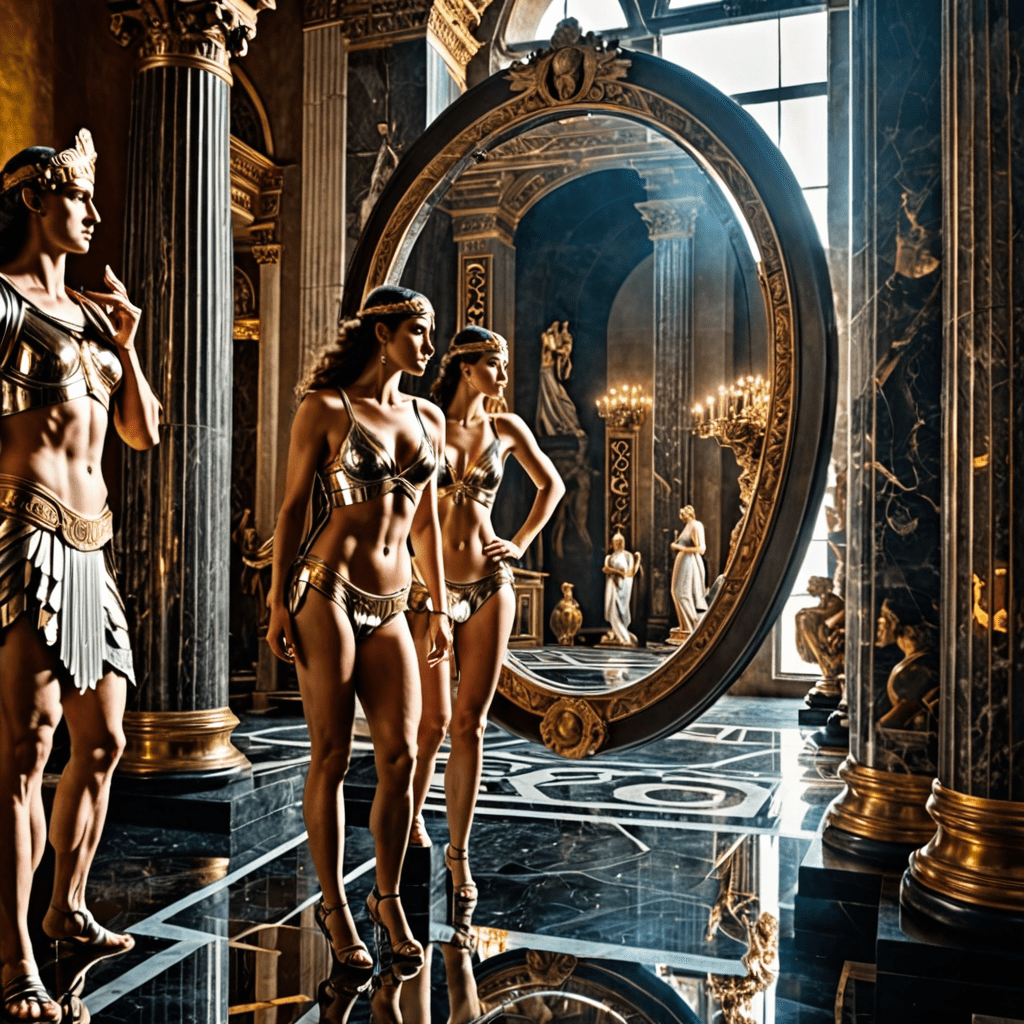The Symbolism of Mirrors and Reflections in Roman Mythology
Introduction
Mirrors and reflections hold a significant place in the world of Roman mythology, encapsulating profound meanings and symbolism. Let’s delve into how mirrors and reflections are intricately woven into the rich tapestry of Roman myths.
The Mirror of Venus
In Roman mythology, the goddess Venus, associated with love, beauty, and fertility, often gazes into a mirror. The mirror symbolizes self-reflection, not merely of one’s physical appearance but also a deep introspection of desires, emotions, and relationships. Venus’s mirror emphasizes the importance of self-love and introspection in nurturing healthy connections with oneself and others.
Narcissus and Echo
The tale of Narcissus and Echo exemplifies the theme of reflection in Roman mythology. Unable to tear himself away from his own reflection in a pond, Narcissus falls in love with himself and meets his tragic end. This narrative warns against excessive self-love and vanity, showcasing how reflections, be it in water or mirrors, can trap one in a cycle of narcissism and self-absorption.
Hecate and Mirror Divination
The goddess Hecate, associated with magic and mysteries, is often depicted carrying a mirror. This mirror, used for divination, symbolizes clarity and the ability to see beyond the mundane world into the realm of the supernatural. Mirror divination was a common practice in ancient Rome, believed to reveal insights into the future and provide guidance from the spiritual realm.
Conclusion
Mirrors and reflections in Roman mythology serve as potent symbols that transcend mere physical representations. They encapsulate themes of self-reflection, vanity, divination, and introspection, offering valuable insights into the complexities of human nature and the divine. Exploring these symbolic elements enriches our understanding of Roman myths and the profound wisdom they impart.
FAQs about the Symbolism of Mirrors and Reflections in Roman Mythology
What is the significance of mirrors in Roman mythology?
Mirrors in Roman mythology symbolize reflection, self-awareness, and introspection. They are often associated with the idea of seeing beyond the physical realm into one’s true self or inner world.
Which Roman myths feature mirrors or reflections prominently?
One of the most famous instances is the myth of Narcissus, who falls in love with his own reflection in a pool of water. Another example is the story of Perseus using a polished shield as a mirror to defeat Medusa, the Gorgon whose gaze turned people into stone.
How do mirrors represent duality in Roman mythology?
Mirrors in Roman mythology can represent duality by showing both the external and internal aspects of a person. They reflect not only physical appearances but also inner emotions, desires, and flaws, highlighting the complex nature of human beings.
What do mirrors symbolize in terms of truth and deception in Roman mythology?
Mirrors in Roman mythology can symbolize the contrast between truth and deception. They can reflect one’s true self, revealing honesty and authenticity, but they can also be used to distort reality or hide one’s true intentions, symbolizing deceit and illusion.



